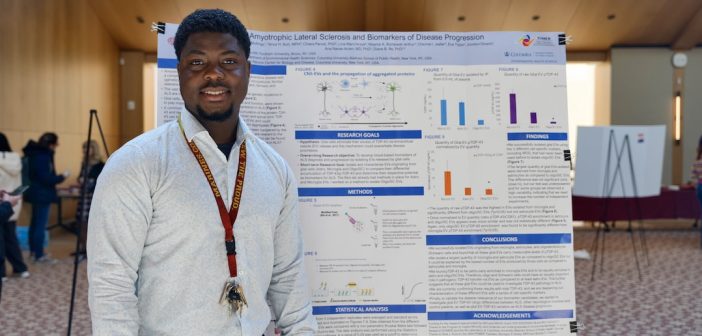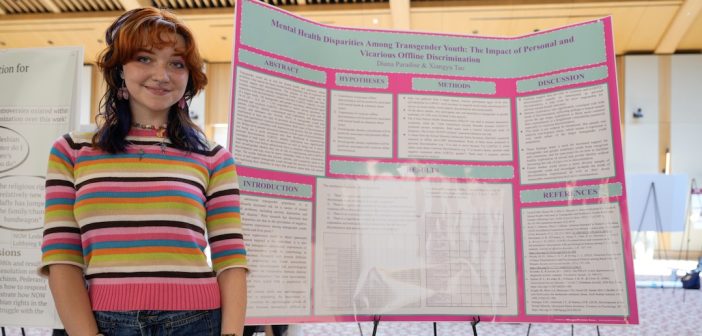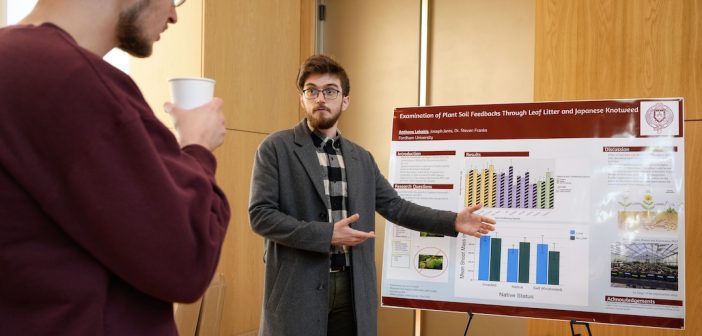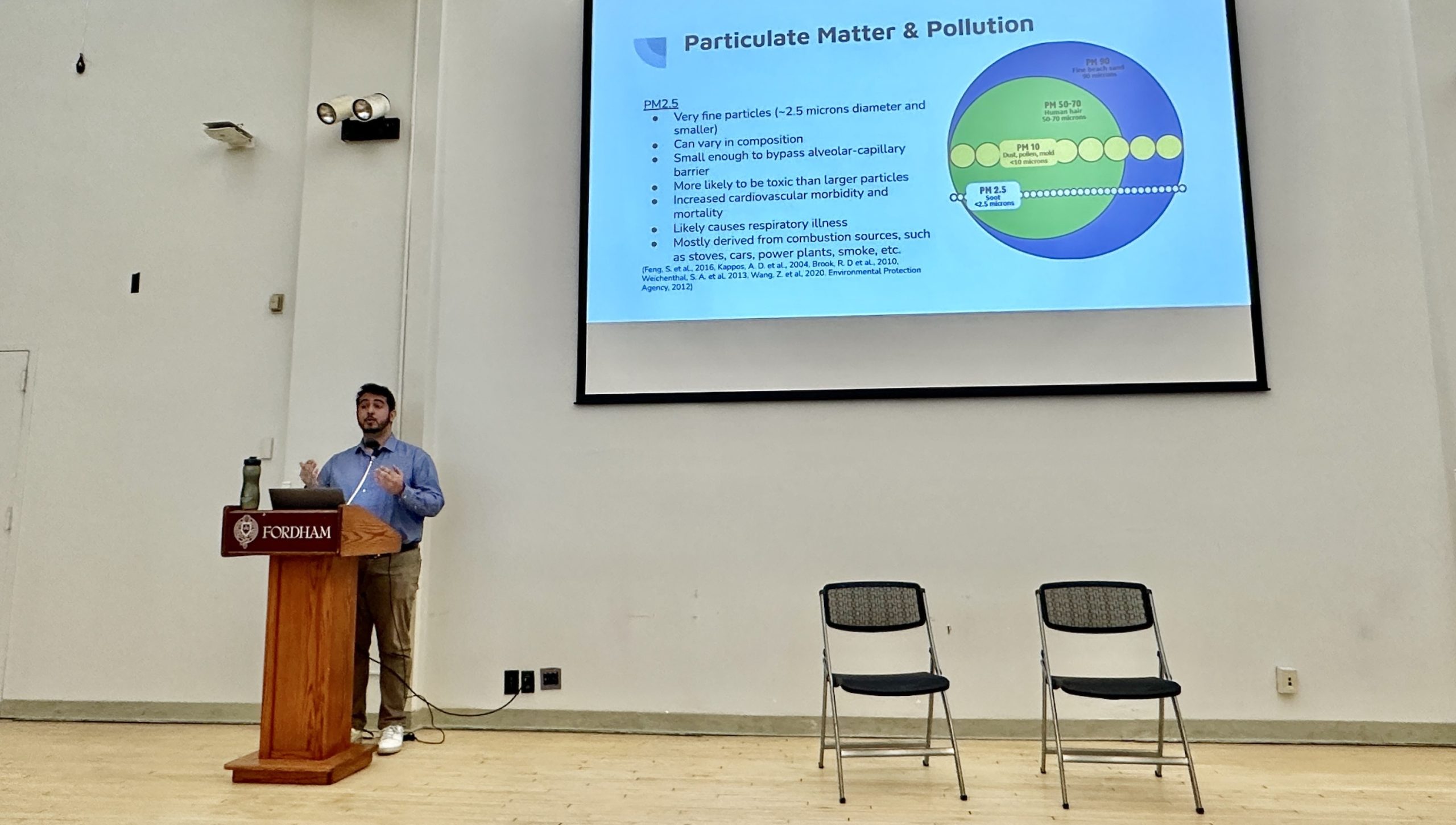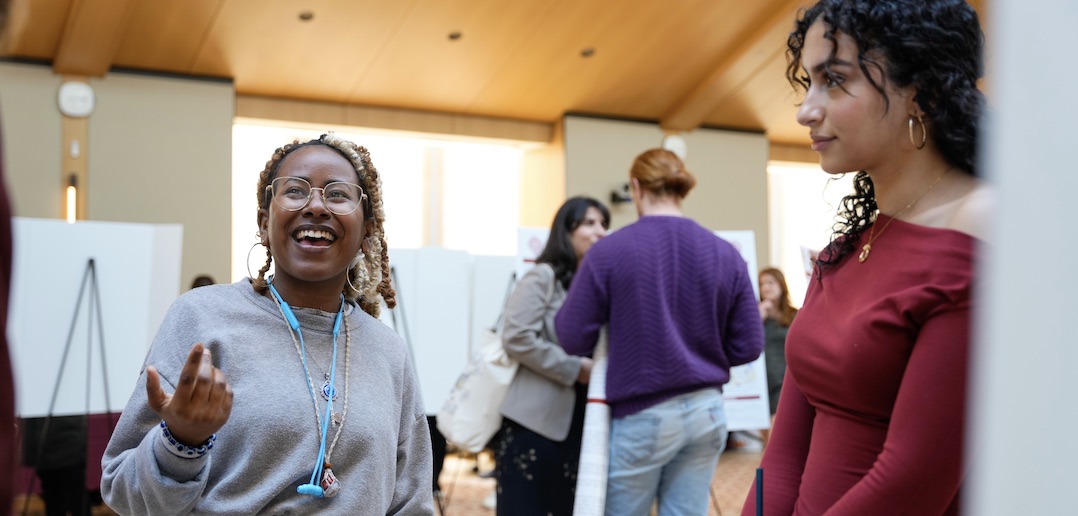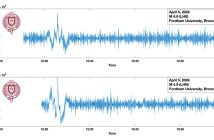Developing a More Affordable Way to Measure Air Quality
Presenting at the symposium’s Earth Day panel was Santiago Plaza, a senior who works as a research assistant for Project FRESH Air, an initiative where Fordham students and faculty visit middle and high schools in the Bronx and New York and install air quality monitors to teach the children about how pollution affects their environment. Unfortunately, those monitors aren’t cheap. The price of the Project FRESH Air monitors ranges from $179 to $259.
Plaza’s goal was to create sensors that perform similarly, if not better, than the sensors currently on the market—and for a much lower price. He developed a successful prototype that cost about $70 to make (though he stressed that it will require more testing in the future).
“Being able to have lower-cost monitors will allow us to work with more schools. It’s also really important to have a low-cost means to measure air quality so that people who don’t have as much financial support can take their health and care for their environment into their own hands,” said Plaza, an integrative neuroscience major who plans on applying to graduate or medical school.
The Role of ‘Magic’ in Early Modern Russian and Ukrainian Societies
Grace Powers, a senior who double majors in sociology and history and minors in Russian, presented her research on the role of “magic” in Russian and Ukrainian societies during the early modern period. Powers defined magic as anything unexplainable.
“It was a way of understanding the world and to claim agency or knowledge during a time when many people didn’t have any,” she said.
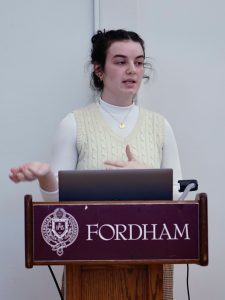
Powers presents “Spells, Potions, Bloodied Hearts, and Bad Weather: The Role of Magic in Early Modern Russia and Ukraine.”
Notions of magic permeated many parts of life, including healing practices, politics, and warfare.
Some events perceived as “magical” were so powerful that they could lead to riots and the murder of neighbors, said Powers. In 1547, the city of Moscow experienced a devastating fire that killed about 1,700 people. The citizens blamed the fire on the tsar’s grandmother and uncles, claiming that they had caused the destruction by sprinkling blood from a stolen heart over the city. As a result, the people rioted and demanded the execution of the royal family.
In her research presentation, Powers, who studied primary documents and scholarly articles, argued that magic was a powerful tool and resource during that time period—and has implications for today’s world.
“This is really important for understanding the culture at that time, which is the basis of culture for many Eastern and Slavic European countries now. Understanding their mindsets better is also important for us in the United States, since we have diplomatic ties with them,” said Powers, who was recently awarded a Fulbright to teach English in Estonia for a year.
Several members of the Fordham community were also celebrated at the symposium’s awards ceremony. The Faculty Mentor of the Year award was given to Molly Zimmerman, Ph.D., associate professor of psychology, and Nathan Lincoln-DeCusatis, associate professor of music. The inaugural Anne L. Geiger Award, awarded to a student whose contributions and research bring together diverse people and perspectives, was given to senior Sophia Maier. The Fordham College Alumni Association Award was given to senior Miguel Sutedjo.
